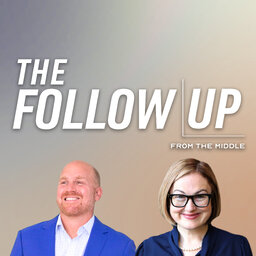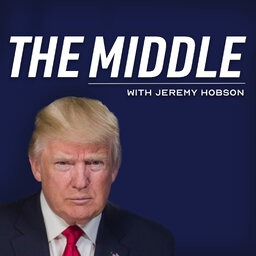Remote vs. In-Person Work: Where Do We Work Best?
On this episode of The Middle we're diving into the debate between remote vs. in-person work. Jeremy is joined by Atlantic staff writer Rose Horowitch and Kourtny Garrett, President and CEO of the Downtown Denver Partnership. The Middle's house DJ Tolliver joins as well, plus callers from around the country. #remotework #wfh #worklifebalance #rto #office #federalworkers
In 1 playlist(s)
The Middle with Jeremy Hobson
The Middle with Jeremy Hobson is a national call-in talk show focused on bringing the voices of Amer…Social links
Follow podcast
Recent clips

The Follow Up: Fear in Trump's First Year, Michigan and the Midterms
22:56

One year of Trump: How are His Policies Affecting You?
49:39

The Follow Up: Minneapolis, Maduro’s Capture, and the First Days of Mamdani
26:52
 The Middle with Jeremy Hobson
The Middle with Jeremy Hobson